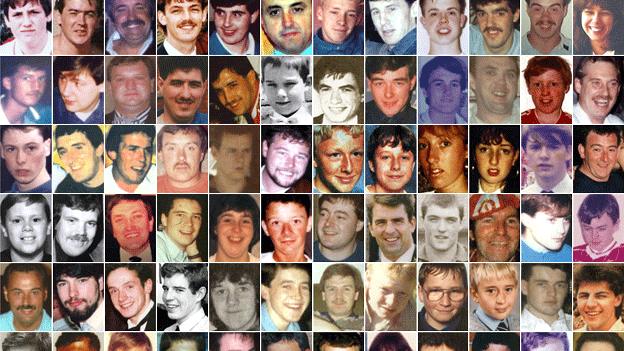Hillsborough inquests: Families' strain at enduring evidence
- Published
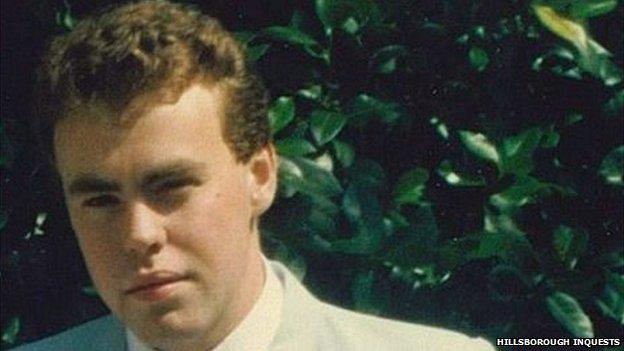
Andrew Sefton was 23 when he died at Hillsborough
A woman who lost her brother in the Hillsborough disaster says she can no longer face regularly attending the inquests, one year after they began.
Julie Fallon's brother Andrew Sefton, 23, was one of 96 fans who died.
She said families were sitting through traumatic evidence and that having to listen in silence made it doubly tough.
Charlotte Hennessy, whose father James died in the disaster, told the BBC the inquests in Warrington had "opened up a whole new grieving process" for her.
The new inquests were initially expected to last nine months, but may now continue until early 2016.
Events of 15 April 1989, which resulted in the deaths of 96 football fans, have never been scrutinised in so much detail.
Over the past year the jury has examined the safety of the stadium, which one expert said had its terraces' capacity set too high.
For the first time, the way the emergency services responded has been analysed fully in court.
And the jury has heard claims of a police cover-up - allegedly designed to deflect blame on to the fans.
But the evidence began on March 31 last year with emotional portraits of those who died.
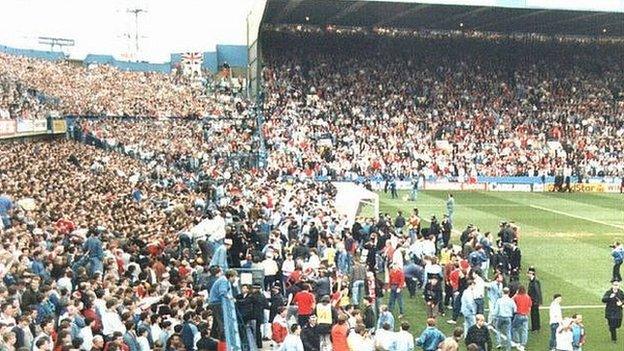
Ninety-six Liverpool fans as a result of the terrace crush at the stadium in Sheffield
In Mrs Fallon's statement read to the jury, she said: "My brother's life was like a book that had a title, an introduction, described the characters, set the scene and then someone ripped out the rest of the pages."
Mrs Fallon has been a regular at the hearings but now plans to dramatically cut the number of days she attends - restricting herself to those directly relevant to her brother.
She said: "You can see the strain up close.
"You can see the fact that people's heads are bowed, the fact that they're tense, the fact that, you know, some people are crying.
"It's palpable because you're in amongst it and that is really difficult to sit amongst, day after day."
For the past year Charlotte Hennessy has been juggling bringing up her three boys with going to the inquests.
Her father James Hennessy, known as Jimmy, was 29 when he died - she was aged six.
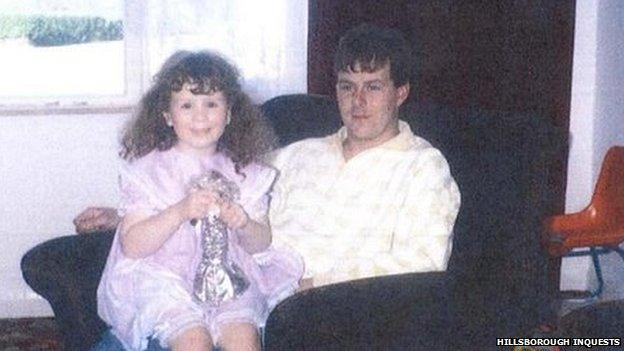
Charlotte Hennessy (left) is now juggling bringing up three children and attending the hearings into the death of her father
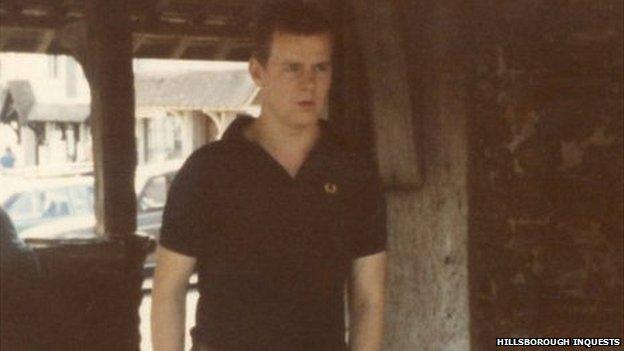
James Hennessy was 29 when he died as a result of the Hillsborough tragedy
She said: "I don't think I was prepared for quite how traumatic it would be.
"I think that maybe it's opened up new wounds, but it's opened up a whole new grieving process for me because I was so little."
Ms Hennessy said she attended 10 days in a row around the time of former match commander Ch Supt David Duckenfield's evidence.
"To be honest I don't remember most of it, [because] you're just getting up, driving there, driving back, making tea, going to bed," she said.
"I felt really sorry for the boys then because they [have] hardly seen me."
"I'm hoping that once this is all over, I can have a life without Hillsborough and it doesn't take any more of my children's lives."
The evidence at court is now moving into how South Yorkshire Police gathered statements after the disaster.
There will then be individualised hearings for all of the 96 who died.
For Ms Hennessy and the rest of the families, it is a process that is set to last for at least several months.
- Published31 March 2015
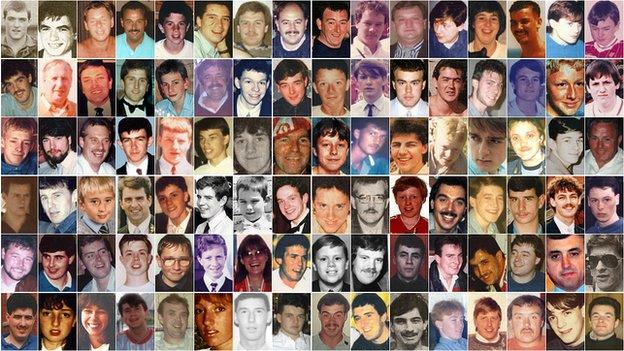
- Published26 April 2016
